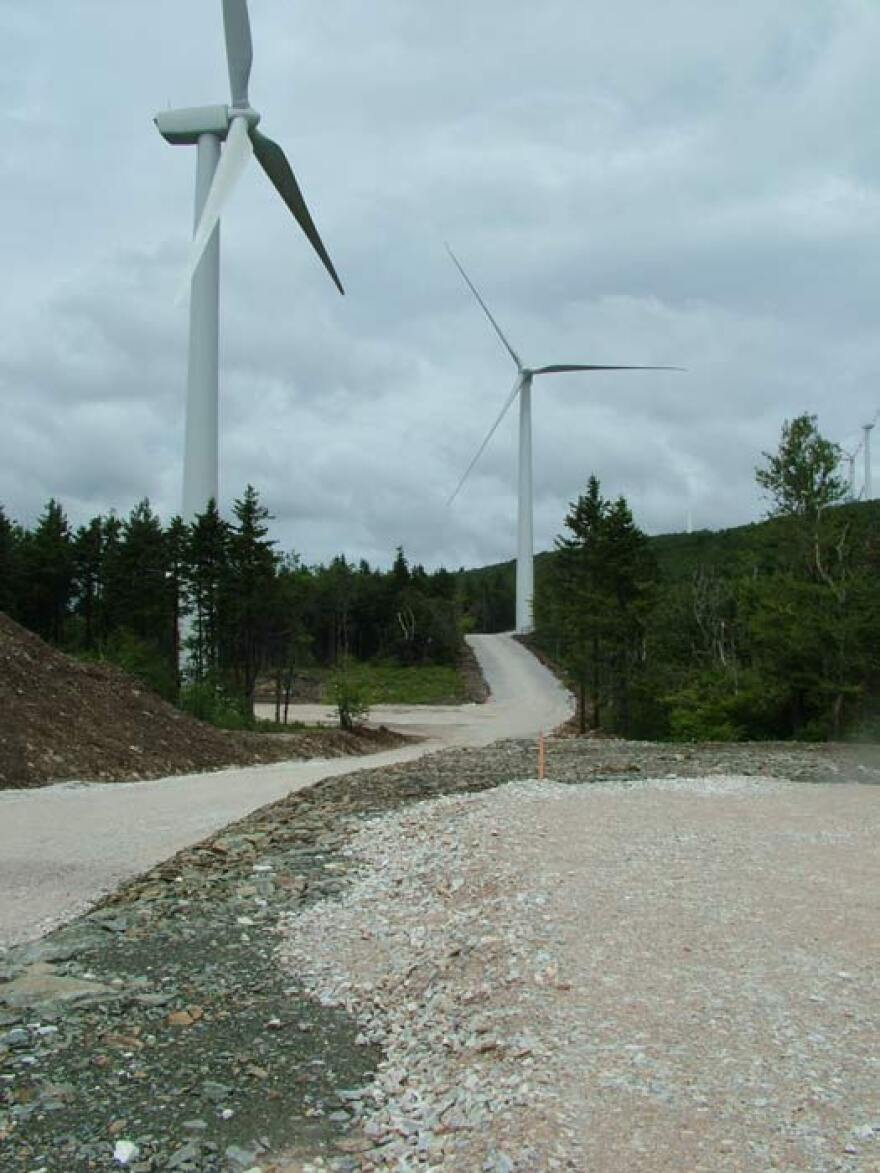A recent national study finds that wind turbines have no effect on property values. But some western Massachusetts residents disagree.
The study by the Lawrence Berkeley National Lab took data from 50,000 home sales among 27 counties in nine states including New York and Pennsylvania. The study found no evidence proving that the existence of wind turbines hurt property values or sales in areas within 10 miles of the turbines. Ben Hoen is the study’s lead author. He says the research looked at house size, age, and land area to make sure it wasn’t solely based on distance from a turbine.
“If one only looks at the prices of homes and doesn’t control for these other characteristics that obviously do affect the price of homes, then one will potentially miss a very important set of differences,” said Hoen.
Wind turbines have been subject of debate in the Berkshires and across Massachusetts since the state’s Green Communities Act was passed in 2008, as Governor Deval Patrick has set a goal of developing 2,000 megawatts of wind capacity by 2020. This March, the town of Heath banned wind turbines, and in July, residents in Peru defeated an amendment that would have allowed turbines to be built. Yet the town of Otis approved plans to build another wind turbine after the first one was put up in 2009. Virginia Irvine is the President of Wind Wise Massachusetts, a statewide advocacy group that warns people of what it sees as turbines’ negative impact.
“In Otis, that’s on a quarry area, sort of an industrial area,” Irvine said. “It’s a smaller turbine than the ones they’re putting up now.”
Hoen says his study looked at much larger facilities with an average of 48 turbines each. Irvine is skeptical of the Lawrence Berkley study since the lab is contracted by the U.S. Department of Energy. She also says one person cited in the study interned for Iberdrola Renewables, the company that operates the 19-turbine Hoosac Wind Project in the Berkshire towns of Florida and Monroe.
“In the Hoosac project, we know that there are people that have signed gag orders with Iberdrola for thousands of dollars of year in order not to say anything negative about the project,” she said. “What I would call a bribe.”
Paul Copleman is the Communications Manager for Iberdrola Renewables.
“Our lease language with landowners in Massachusetts and with dozens of other projects across the country has no such language,” Copleman said. “We encourage all of our landowners at our projects to communicate with us and with others, including outside parties, if they have any concerns about the project operation.”
Hoen says the study was done independently.
“The DOE did have the opportunity to review the study once we prepared it for publishing, but they did not actually provide review comments,” Hoen said. “They were absolutely not involved in any regard.”
Irvine says wind turbines can disrupt people’s sleep and cause ringing in the ears, vertigo, and even cardiac issues. She says this leads to further troubles.
“Most people can’t take the financial hit,” Irvine said. “So you have a lot of people that have everything invested in their property that are suffering from sleep disruption and other health affects that are sort of trapped.”
Hoen says while the study didn’t specifically look at potential health issues caused by wind turbines, the lack of evidence of negative effects on property values can be used as a proxy since home prices take into account numerous things including nuisances like noise. He emphasizes this study is one of hundreds looking at how railroads, major highways, and power lines affect real estate value.
“It’s difficult for me as a researcher to believe the claims that are out there around wind facilities when I look at this cannon of other research of what would likely be considered much worse to have in the environment around a home and then be able to justify the difference to claims to what has been studied by others,” said Hoen.




